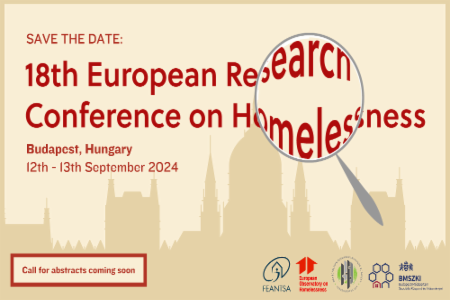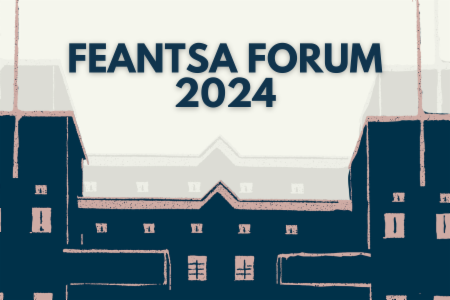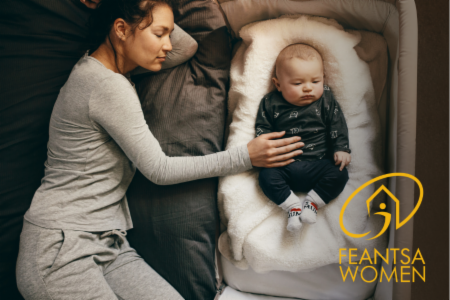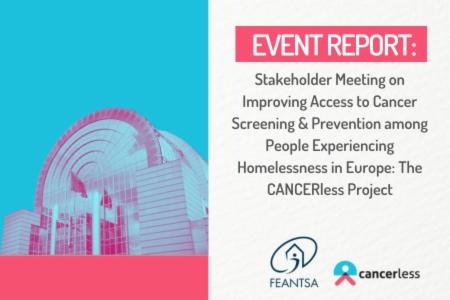Improve Conditions for Migrants, Asylum Seekers and Refugees in Greece Now!
Download our Campaign Statment here in EN/GR
Choose Love, FEANTSA, the Greek Housing Network and The Shift are raising awareness about the situation that migrants, asylum seekers and refugees in Greece are facing right now.
Since September 2020, the aforementioned organisations have sent a series of individual and joint letters to the European Commission and the Greek authorities informing them about the worrying situation on the ground and asking for urgent action so that fundamental human rights are upheld. Following the lack of any response from the Greek authorities, unconvincing responses from the European Commission Directorate General for Home Affairs (DG HOME) and the Task Force Migration Management, and the lack of concrete action to uphold human rights, we are making the aforementioned correspondence public and are launching this campaign to expose the situation on the ground. See below:
- Joint letter to Commissioner Johansson - Choose Love, FEANTSA, Greek Housing Network, The Shift
- Response from Commissioner Johansson
- Response from Head of the Task Force Migration Management, Beate Gminder
- Second joint letter to Commissioner Johansson and Head of the Task Force Gminder
We publicly call for urgent action to both improve access to safe and adequate accommodation for migrants, asylum seekers and refugees, as well as to cover basic needs such as food and access to cash support.
Key messages
I. Immediate action to improve the situation on the ground is required!
In their response letter dated 25.10.2021, the DG HOME Task Force Migration Management states that:
“Overall, the Commission has supported Greece with more than EUR 3,3 billion since 2015, in order to set up its migration and border management systems. This includes support through International Organisations for accommodation, protection and integration programmes for asylum applicants and beneficiaries of international protection. At the same time, the Commission has been working together with the Greek authorities in order to develop their national capacity and transition to an effective and centrally-run migration management system that caters for the protection and dignity of migrants and refugees as well as to support the seamless integration on beneficiaries of international protection into the Greek society.”
However, evidence provided by partner organisations on the ground, numerous reports published by highly reputed local and international NGOs active in Greece, as well as articles in local and international media clearly show that the situation on the ground remains worrying, and fundamental human rights are not upheld.
II. Housing and homelessness
The housing conditions in camps and reception centres need to be improved
Refugees, migrants and asylum seekers are at higher risk of homelessness and there has been an increase in the numbers of homeless refugees and asylum seekers since the pandemic started, in Greece. It should be stressed out that according to the ETHOS, the EUROPEAN TYPOLOGY OF HOMELESSNESS AND HOUSING EXCLUSION, developed by FEANTSA, accommodation in receptions centre constitutes houselessness and cannot be considered anything but a temporary solution.
What do we ask for?
- Resettlement from the islands to the mainland must increase, with those moved to the mainland guaranteed access to continuous and adequate accommodation in secure housing.
- Camps and reception centres must only be used as a temporary measure and must, at the very least, comply with minimum standards.
- The Greek Government must actively work towards the full realization of the right to adequate housing for all.
III. Housing rights for recognised refugees
A high number of recognised refugees (and individuals whose request for asylum has been rejected) still live in camps or are experiencing homelessness, due to a lack of viable housing alternatives.
What do we ask for?
- Learning from the deficiencies of the HELIOS integration programme, which has been described as unsustainable by multiple NGOs and human rights watchdogs, the Greek Government should design effective housing and integration programmes for recognised refugees.
- The European Commission should confirm how and when it will assess the functioning of the HELIOS programme and must monitor what happens to those that need to leave the HELIOS programme after assistance ends, developing, together with the Greek Government, mechanisms to ensure that no one is rendered homeless after exiting EC funded accommodation.
- The Commission must clarify which standards they adhere to and how they will monitor the implementation of these minimum standards.
III. Access to food
Athens, October 18, 2021 - In a new bleak turn of events, people that seek or have received international protection in Greece are now deprived of food or their cash allowance due to the policies pursued by the Greek government and an overall lack of preparation to undertake its obligations.
Almost 60% of the current residents of the Greek refugee camps on the mainland no longer have access to either sufficient or suitable food, causing severe distress and putting vulnerable people at risk.
As mainland sites’ populations are 24% women (including pregnant women), 40% children,[1] single-headed families, patients with special medical and nutritional conditions, including chronic conditions, all these groups are at serious risk of hunger. In some places, food is not even provided to those put in quarantine due to COVID-19.
What do we ask for?
- The Greek government should immediately disburse belated payments of cash assistance and ensure food provision to people living in facilities (e.g. camps and ESTIA apartments), irrespective of their immigration status. Depriving them of this basic human right is shameful and a violation of fundamental human rights.
- Access to livelihood is a fundamental human right. Food insecurity, let alone complete food deprivation, should not be experienced by anyone, especially not anyone hosted by a European Union government, and supported by European Commission funding. The Greek government and the European Commission must act urgently to fulfil this right and meet the needs of those who seek protection.
IV. Building Multi Purpose Reception and Identification Centres
Further to the events on 8 and 9 September 2020 that destroyed the Reception facility of Moria on the Greek island of Lesvos, a new Multi-Purpose Reception and Identification Centre (MPRIC) on Lesvos was swiftly created; the conditions in this (and other) Multi-Purpose Center are not in accordance with EU reception standards and furthermore, they resemble to detention conditions.
In their response letter dated 25.10.2021, the DG HOME Task Force Migration Management states that:
"While the tender process for the facilities on Lesvos and Chios is now at its final stages, the new Multi-Purpose Reception and Identification Centre on Samos has opened on 18 September 2021, and the centres on Kos and Leros will follow still in 2021. As regards the fencing around the four open accommodation centres, the International Organization for Migration (IOM) is implementing a project under the AMIF that covers, amongst other actions, the construction and operational needs of reception centres on the Greek mainland. In view of increasing security and safety of residents and staff, it includes the construction or maintenance of fences in certain sites1, as requested by the Greek authorities. The choice of materials to be used (concrete walls, metallic fences, or other materials) is not prescribed by EU reception standards. The Commission and the European Asylum Support Office (EASO) were consulted on the technical specifications prior to the construction of the fences. We underlined that the fencing must take due account of a number of parameters, including safety, security, fire protection, access to sufficient natural light and non-blockage of sight. Amongst others, this ensures that the fencing is placed at an adequate distance from any accommodation units. A mixed solution is implemented that alternates concrete with chain-link fencing, which increases vision into and out of the centres."
What do we ask for?
- The Commission should ensure that its funding will not be used to construct Multi Purpose Reception and Identification Centres and facilities that will be used for the blanket detention of asylum applicants.
- It must further ensure that the freedom of movement is guaranteed, especially in those facilities that are remote from urban areas.
- Greek authorities should comply with EU reception standards and ensure that Reception and Identification Centres are not transformed into detention centres.
V. Access to cash assistance:
Approximately 36,000 asylum seekers have not received cash assistance from the Greek Government since 1 October 2021. The management of the Cash Assistance programme, funded by the European Commission, was planned to be transferred from UNHCR to the Greek Government in July 2021, but a 3-month delay was agreed between the two parties to ensure a better transition. On 1 October 2021, the Greek Government assumed full responsibility.
The food, even when it is distributed, falls short of adult and teenage caloric needs, especially when people are sleeping poorly under environmental conditions and are chronically sick. The poor quality of the food is even more relevant where a person has certain dietary requirements for health reasons, which are not met by the Greek authorities. In these cases, many asylum seekers are forced to buy their own food to compensate for the lack of quality of the food provided. Without cash assistance, this will not be possible.
What do we ask for?
The European Commission and the Greek Government to take urgent action so that Cash Assistance to Asylum Seekers and recognised refugees resumes until there is a sustainable solution in place ensuring food security and coverage of basic necessities such as hygiene products and access to non-food-items.
VI. The situation of civil society organisations in Greece
We have noted that there is a growing effort by the Greek Government to silence civil society organisations working in the field of refugee rights in the country.[2] In a recent statement, Refugee Support Aegean states that NGO registration rules are being arbitrarily and unlawfully applied to civil society organisations that are servicing Reception and Identification Centres.[3] A report from Choose Love found that legislation could severely impede the free and independent exercise of the right to freedom of association of organisations, especially for those smaller and less formalised organisations that find it difficult to comply with registration requirements. In a letter, dated 25 May 2021, Choose Love warned that access to reception facilities would be regulated by legislation which the authoritative Expert Council on NGO Law of the Council of Europe has deemed not in line with international and EU law and standards on the freedom of association and privacy.
In their response letter dated 25.10.2021, the DG HOME Task Force Migration Management states that:
“With regard to the NGO registration law, the Commission has repeatedly acknowledged the key role that civil society plays in upholding the common values and fundamental rights upon which the EU is founded, in line with the Charter of Fundamental Rights. At the same time, regulating activities of private entities, including NGOs, with a view to ensure full transparency is reasonable, while any restrictions imposed, including regarding registration as a precondition for activities in Greece, need to be necessary, justified and proportionate. In this regard, I welcomed the online information event that the Ministry undertook for the NGOs applying for the Registry in June. We continue to express the importance of an open dialogue with NGOs to the Greek authorities, and have asked them to consider holding such meetings more regularly.”
What do we ask for?
The EU Commission should proceed without delay with assessing the compatibility of the Greek legislation on CSO registration with EU law, including the EU Charter of Fundamental Rights, and, for the sake of transparency, make this assessment public.
Under European legislation that Greece has adopted, and international human rights conventions which it has ratified, the Greek government must ensure certain material reception conditions, including: Accommodation; Food, and clothing, in kind or in the form of monetary allowances; The allowances must be sufficient to protect asylum seekers from extreme need; Arrangements to protect family unity; Medical and psychological care; Access for minors to education, and to language classes when necessary for them to undergo normal schooling.
Well documented information from the ground clearly shows that this is not happening in practice. We call for the EU and the Greek authorities to take action so as to ensure that fundamental human rights are upheld, as per their obligation!
[1] IOM factsheet, October 2021 https://greece.iom.int/sites/greece/files/__Merged%20Mainland%20October_21_compressed_0.pdf
[2] European Council on Refugees and Exiles, ‘Greece: EU Funded Securitisation of Camps, Legal Action Against Frontex Before CJEU as Greek PM and Leggeri Exchange Mutual Praise on Reduction of Arrivals’ (28th May 2021) available at: https://www.ecre.org/greece-eu-funded-securitisation-of-camps-legal-action-against-frontex-before-cjeu-as-greek-pm-and-leggeri-exchange-mutual-praise-on-reduction-of-arrivals/
[3] See https://rsaegean.org/en/registry-of-ngos-working-with-refugees-and-migrants-in-greece-under-scrutiny/





